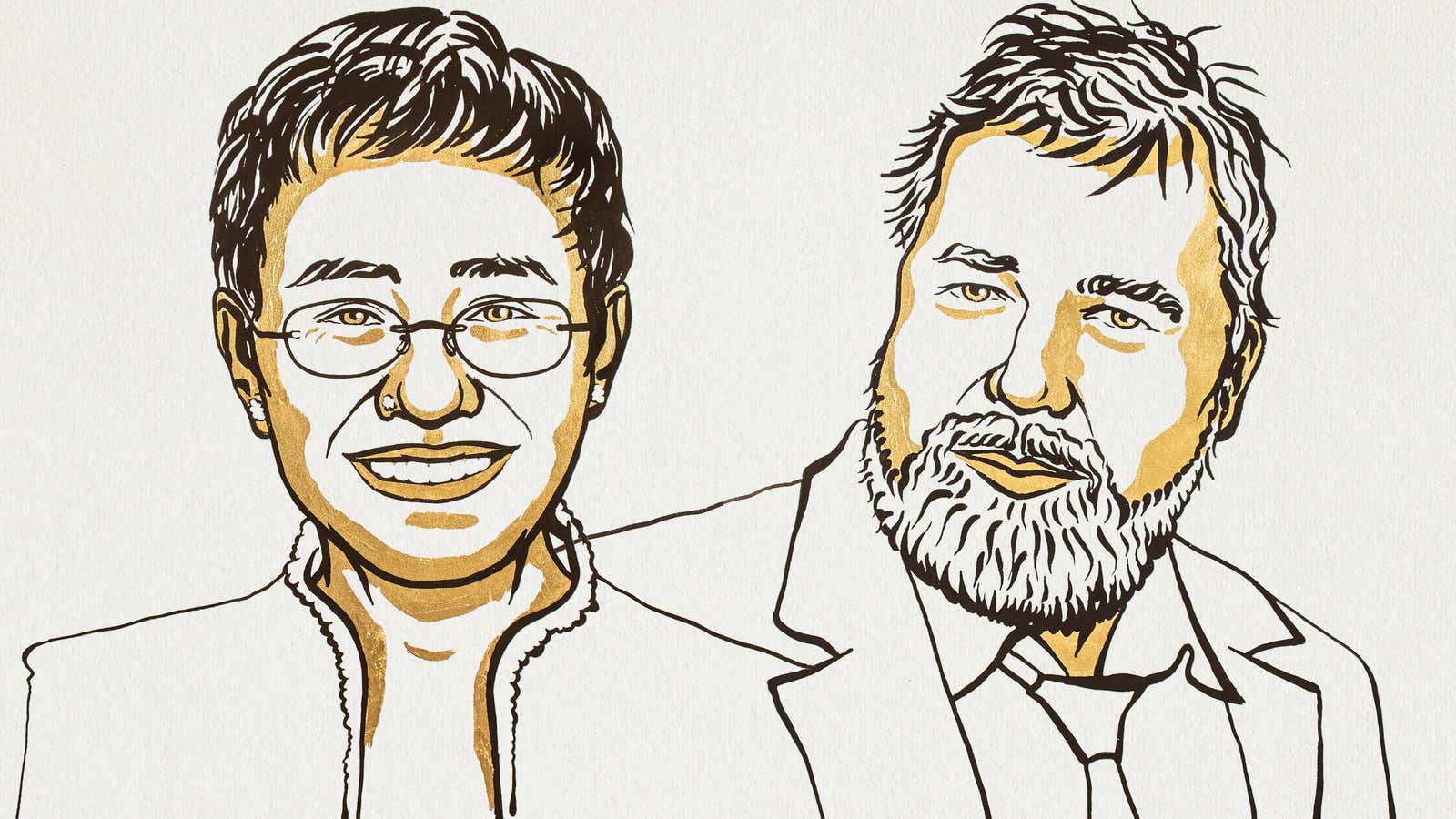In a plain rebuke to the leaders of Russia and the Philippines, the Norwegian Nobel Committee awarded the 2021 peace prize to Dmitry Muratov and Maria Ressa, journalists who have struggled against their governments’ suffocation of the press.
Muratov runs the Novaja Gazeta, a newspaper he co-founded in 1993 and has edited ever since. (In a poetic twist, the newspaper itself was set up in part with the purse from another peace prize—the one awarded to Mikhail Gorbachev in 1990.) Ressa helped established Rappler, a web site that publishes investigative journalism, in 2012.
Who are Dmitry Muratov and Maria Ressa
Both Muratov and Ressa have been consistent critics of their leaders, Vladimir Putin and Rodrigo Duterte. Muratov has written about corruption, human rights abuses, and electoral fraud; as early as 2013, three years before Donald Trump won his election, Muratov’s journalists exposed “troll factories” in Russia, showing how they worked to influence public opinion through concerted internet campaigns.
Under Ressa, Rappler too has documented the spread of misinformation and fake news through traditional media organizations as well as on Facebook, all seemingly instigated by Duterte’s government. Rappler’s most signal contribution, though, has been its coverage of “the Duterte regime’s controversial, murderous anti-drug campaign,” the Nobel committee said. “The number of deaths is so high that the campaign resembles a war waged against the country’s own population.”
Both Muratov and Ressa have faced continual persecution—part of a much larger, illiberal trend of diminishing press freedoms in many parts of the world. Muratov has been threatened with bodily harm and imprisonment; six of its journalists have been killed.
Last year, Ressa was convicted of “cyberlibel,” after a prominent businessman sued her for publishing a reference to an older article in a different newspaper, which had accused him of several crimes. Ressa, who faces up to six years in prison for the charge, is appealing the verdict, but she is also fighting several other cases filed against her and Rappler.
Journalists rarely win the Nobel peace prize
Ressa and Muratov are unusual peace laureates; more often than not, the prize goes to politicians, diplomats, or international organizations. Writers and journalists commonly fall within the ambit of the literature Nobel; in 2015, for instance, the journalist Svetlana Alexievich won that prize for documenting the histories of ordinary people, building what the Nobel citation called “a monument to suffering and courage in our time.”
But Ressa and Muratov’s recognition for Peace isn’t entirely without precedent. In 1986, the writer Elie Wiesel won the prize as much for his activism as for his books that spoke out “against violence, repression and racism,” the Nobel committee said.
Earlier still, the journalist Norman Angell was awarded the prize in part for writing “The Great Illusion,” a book arguing that the economic cost of war was so high that no nation would start one. The book was published in 1909, half a decade before the first world war began; Angell won the peace prize in 1933, half a decade before the second world war began.
